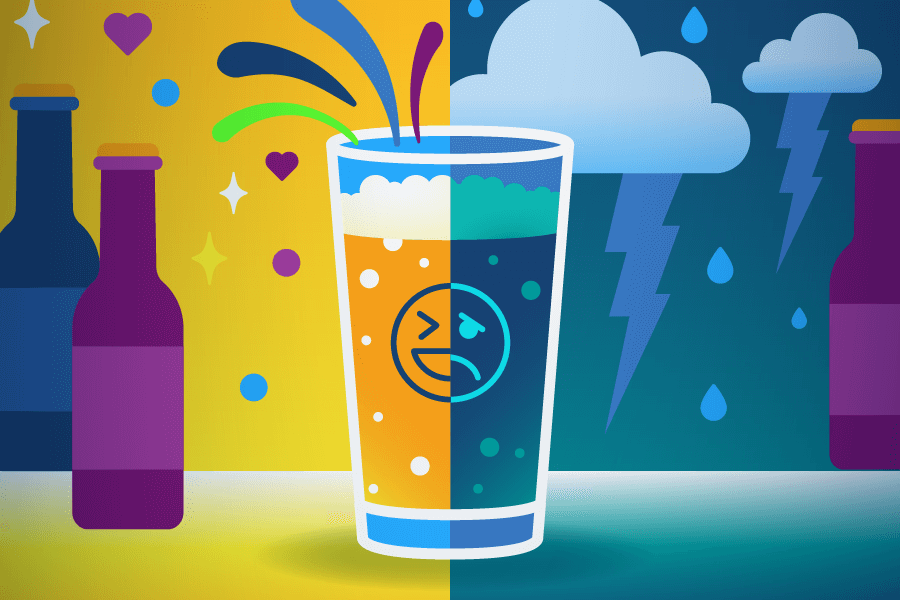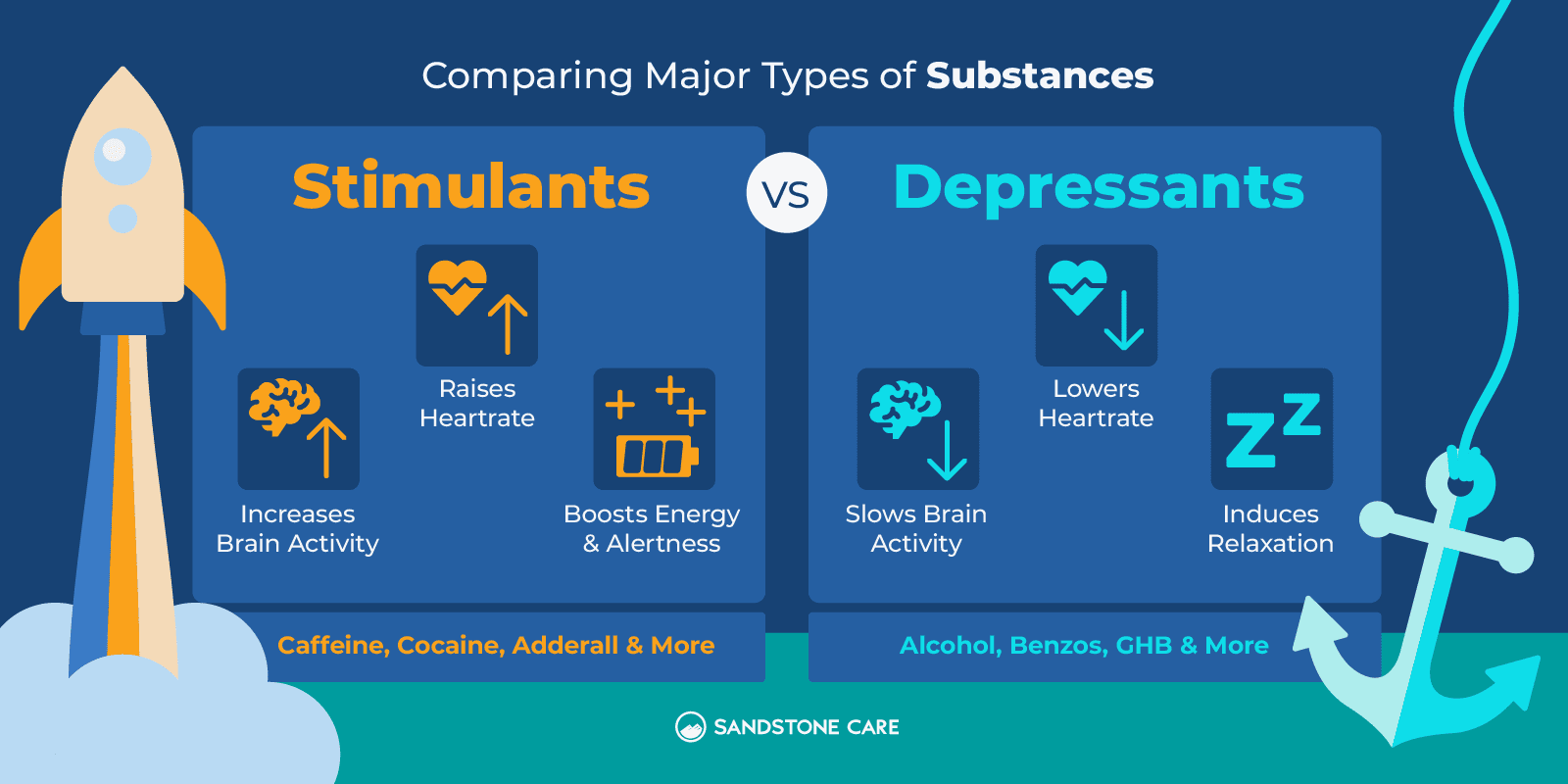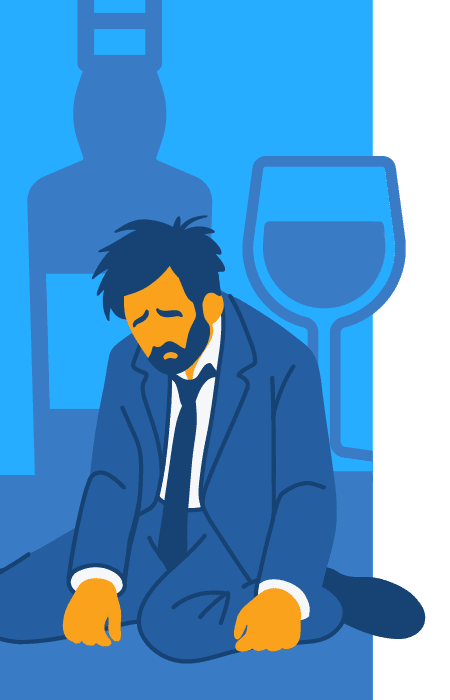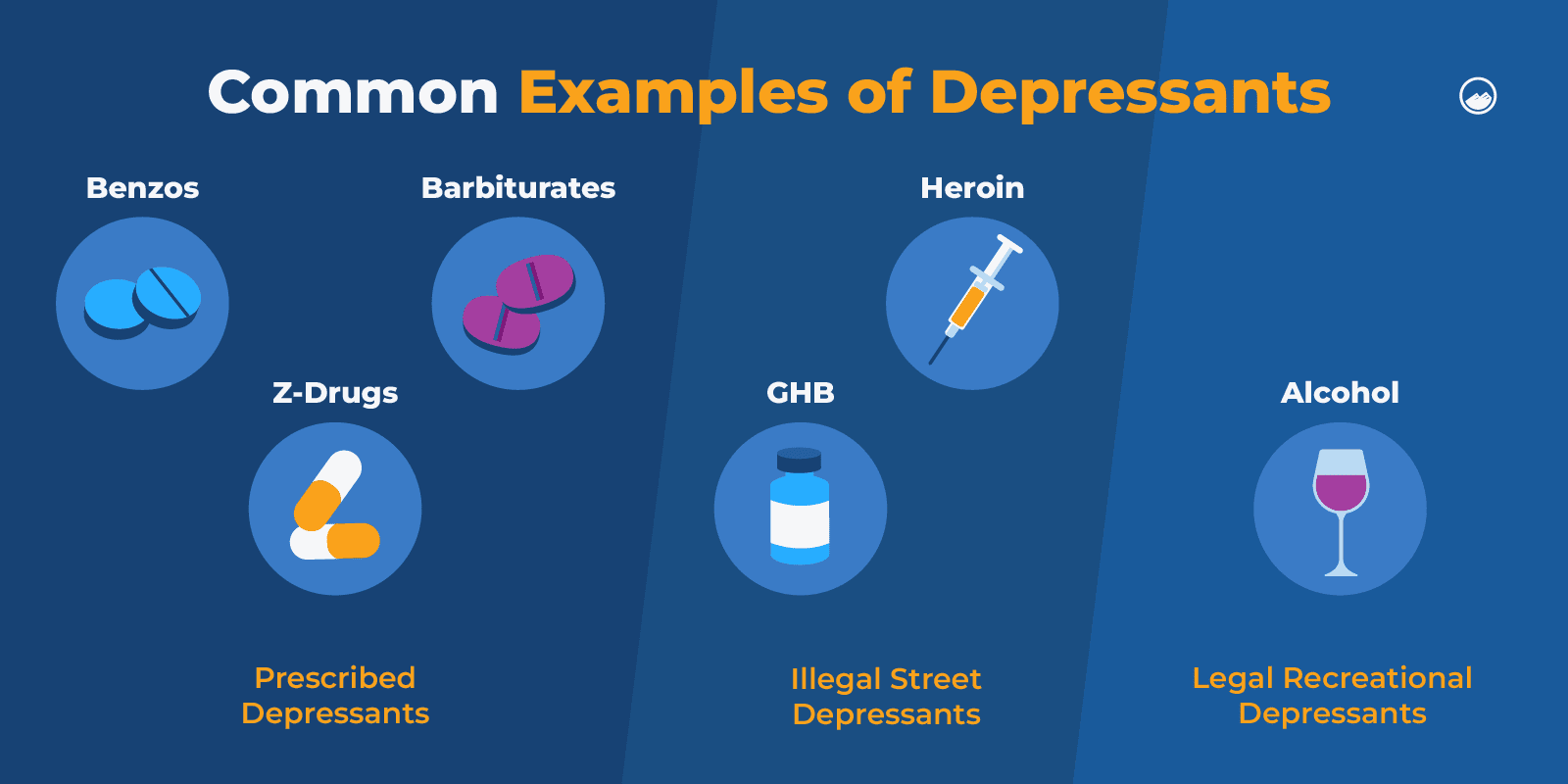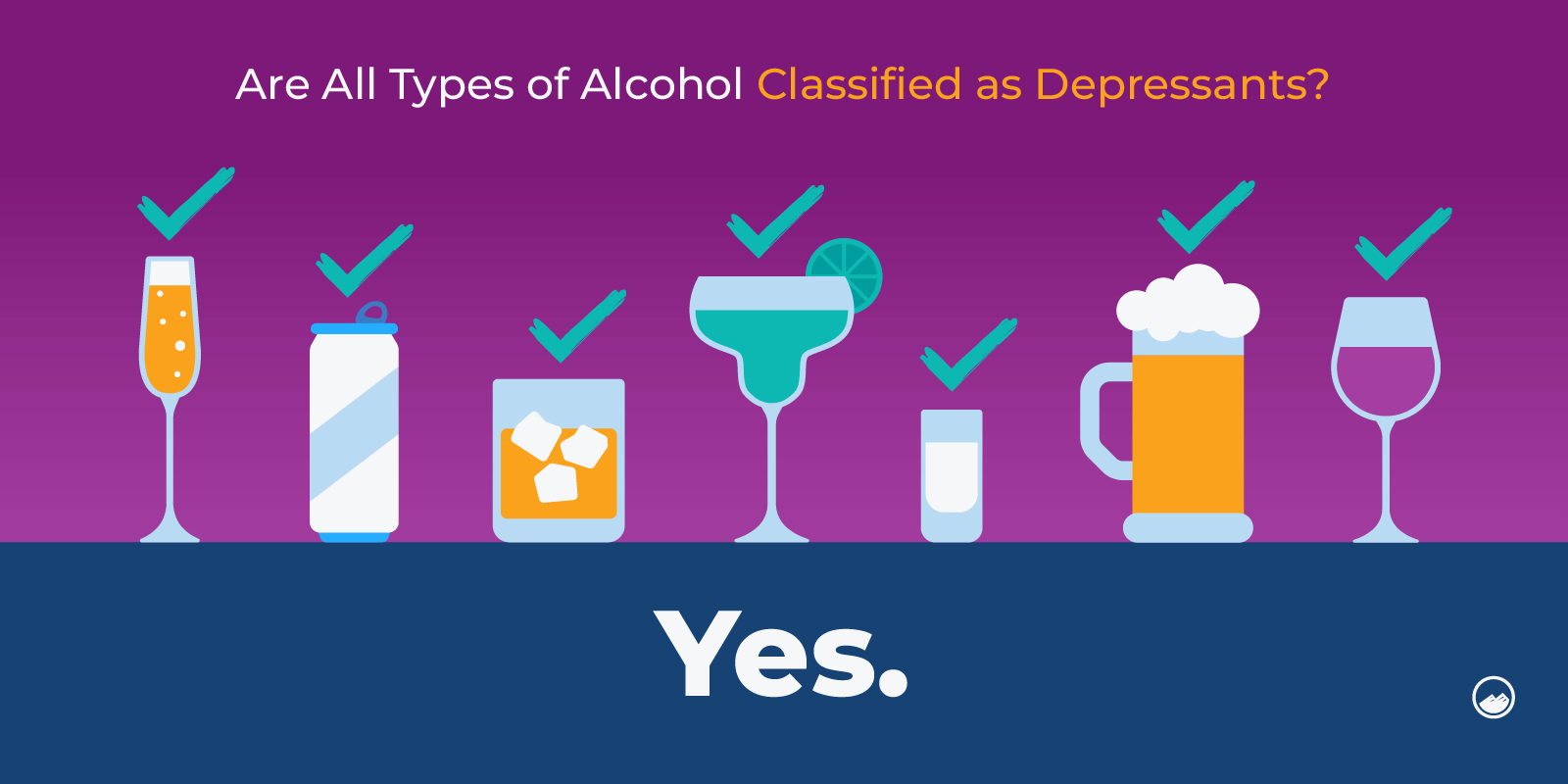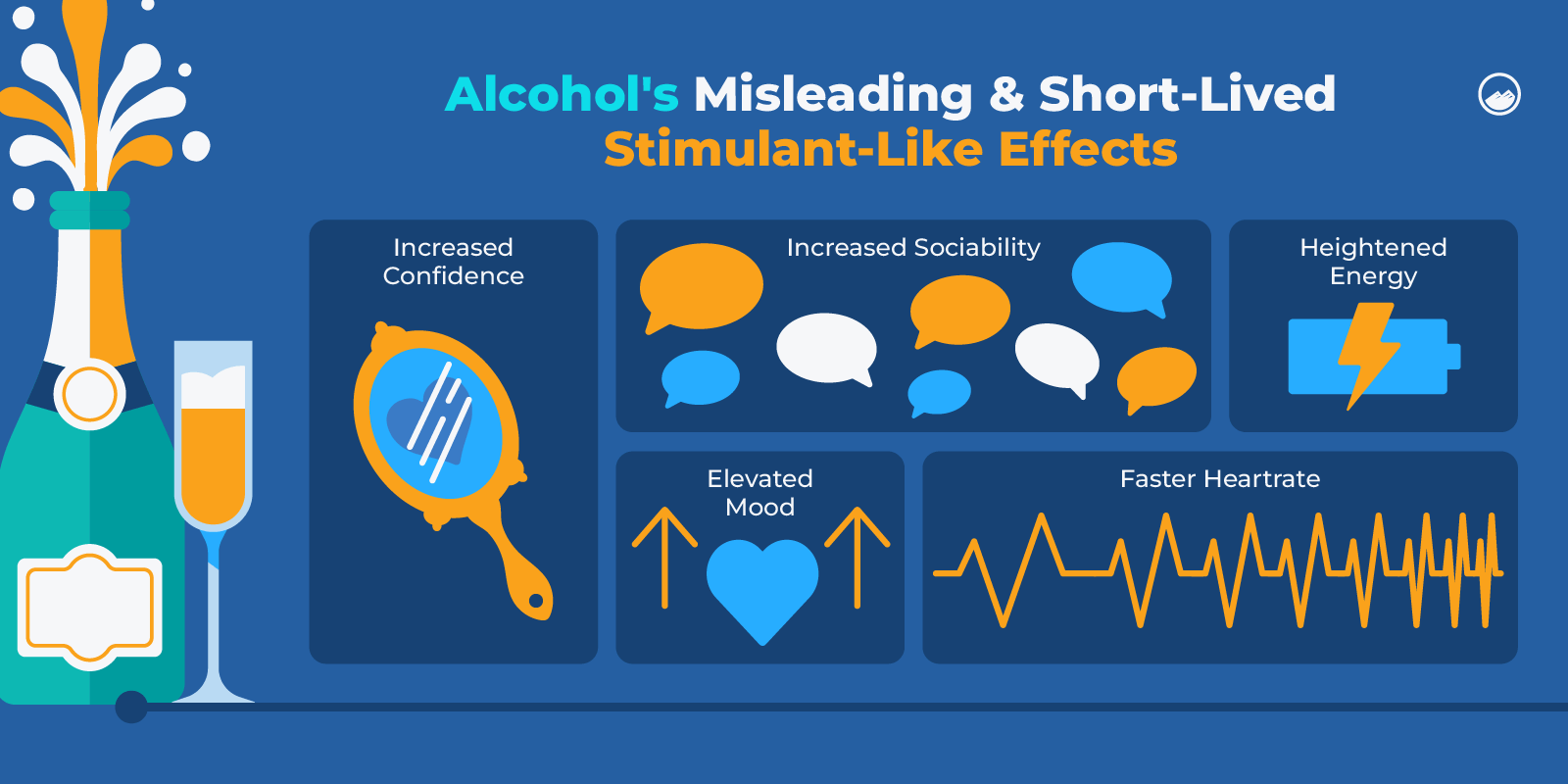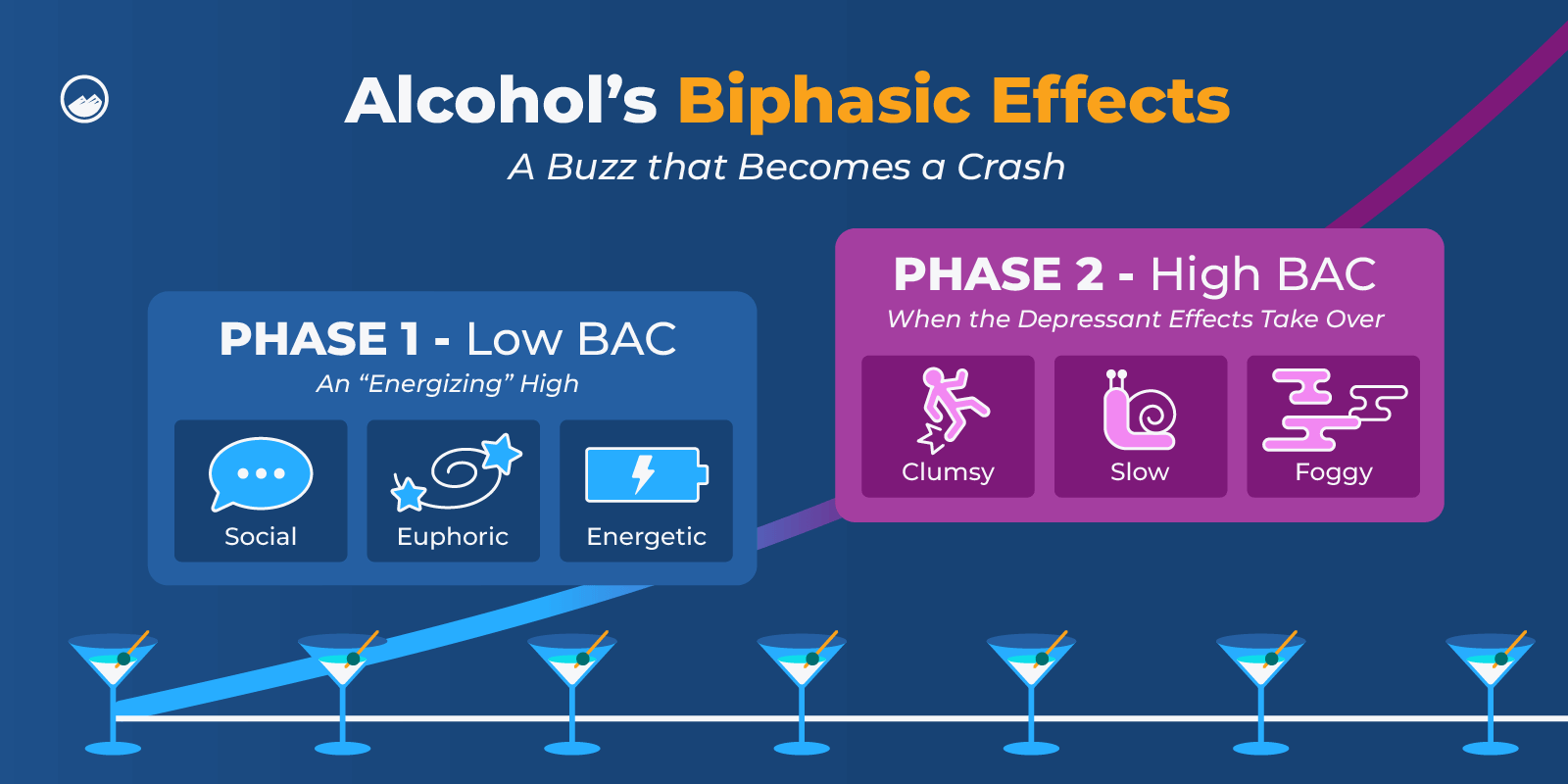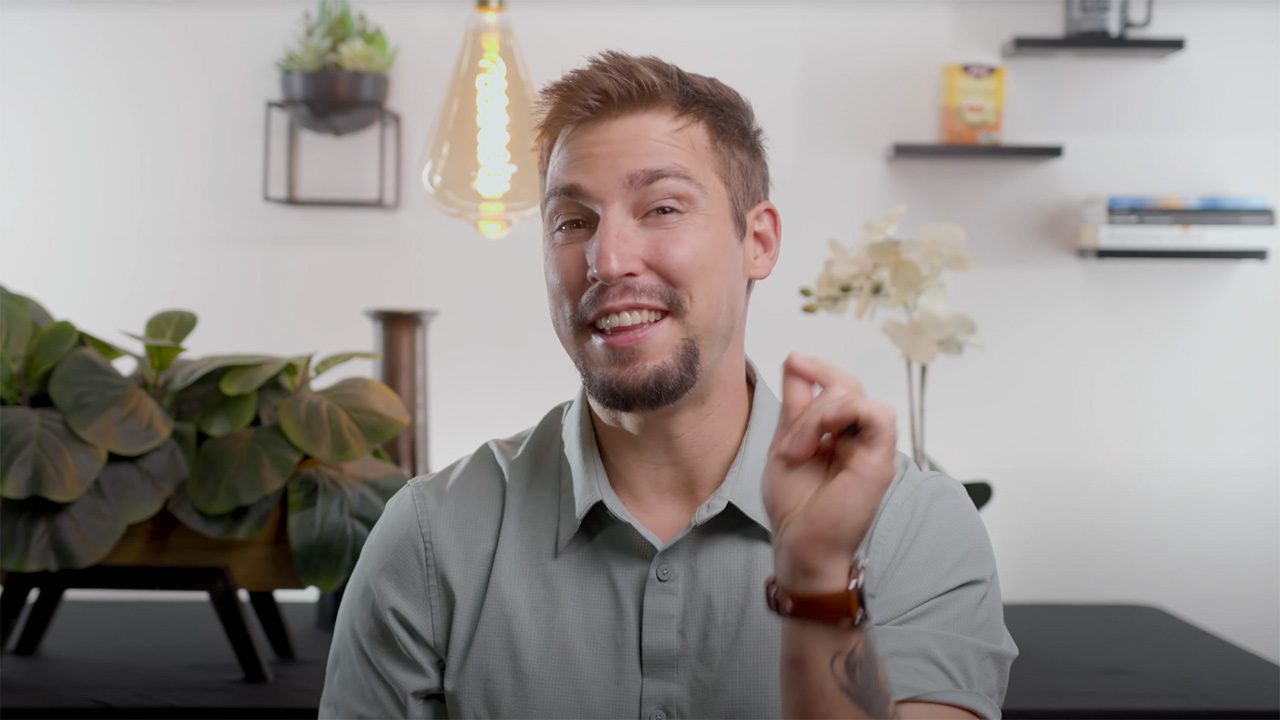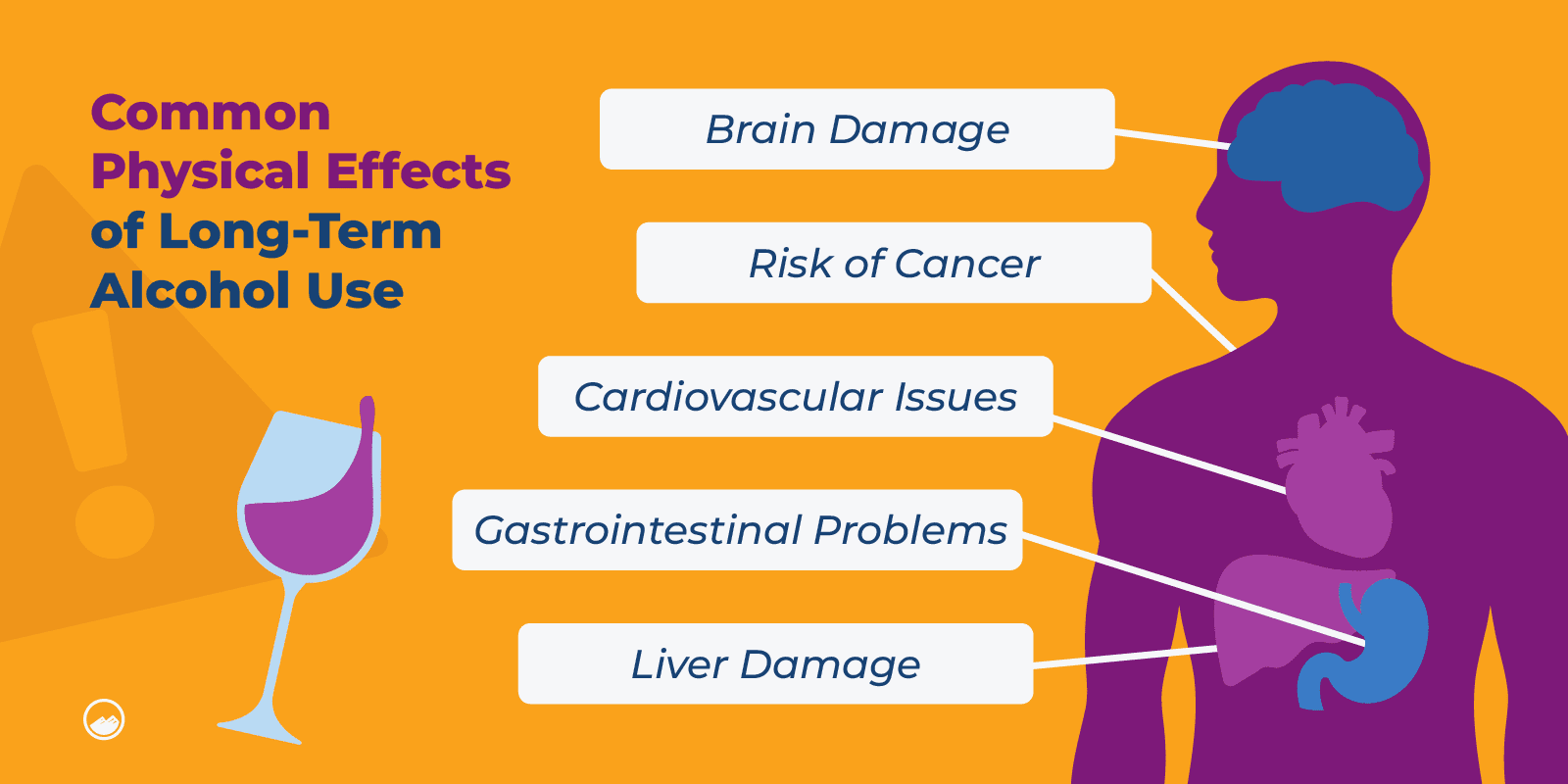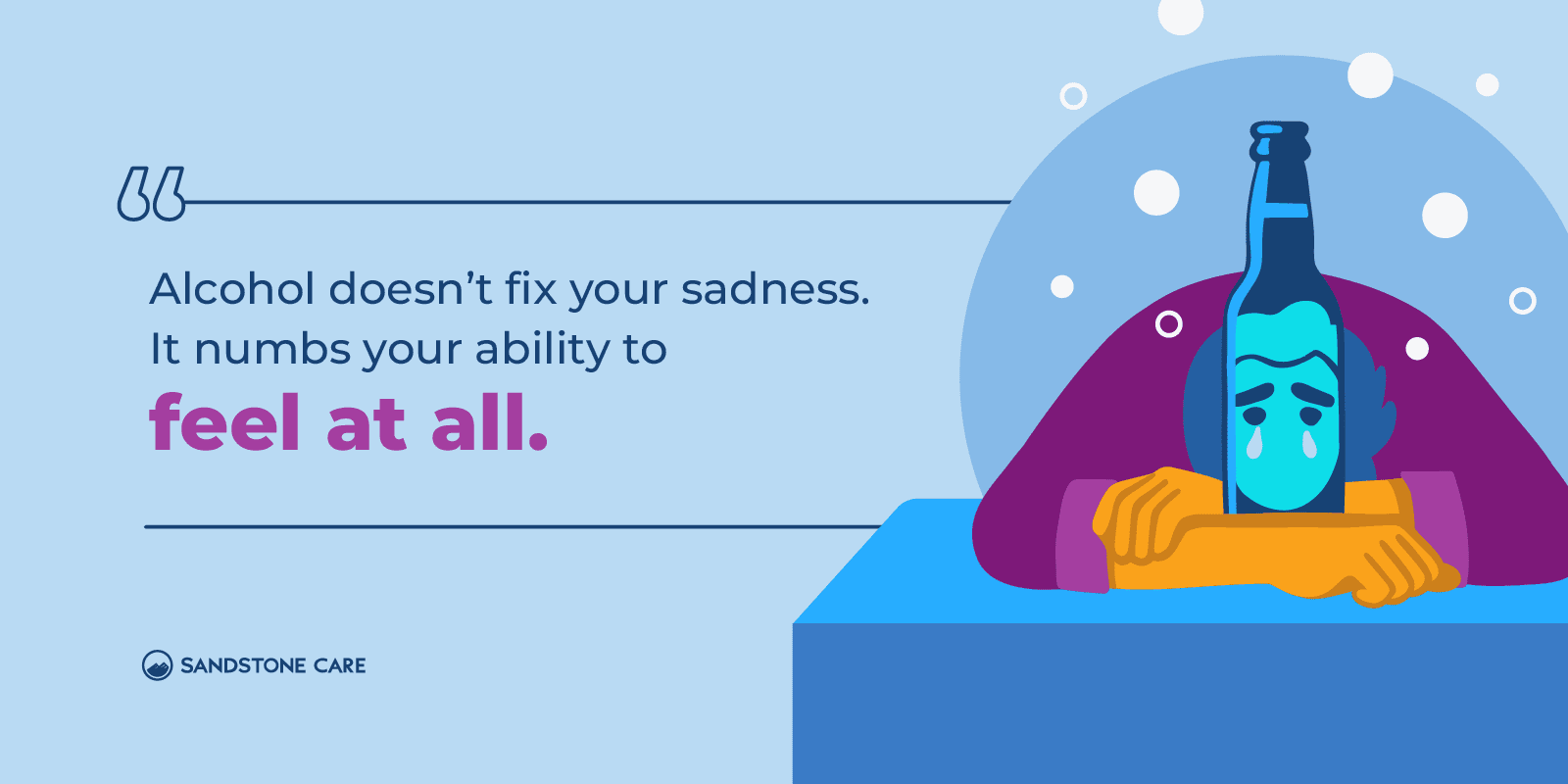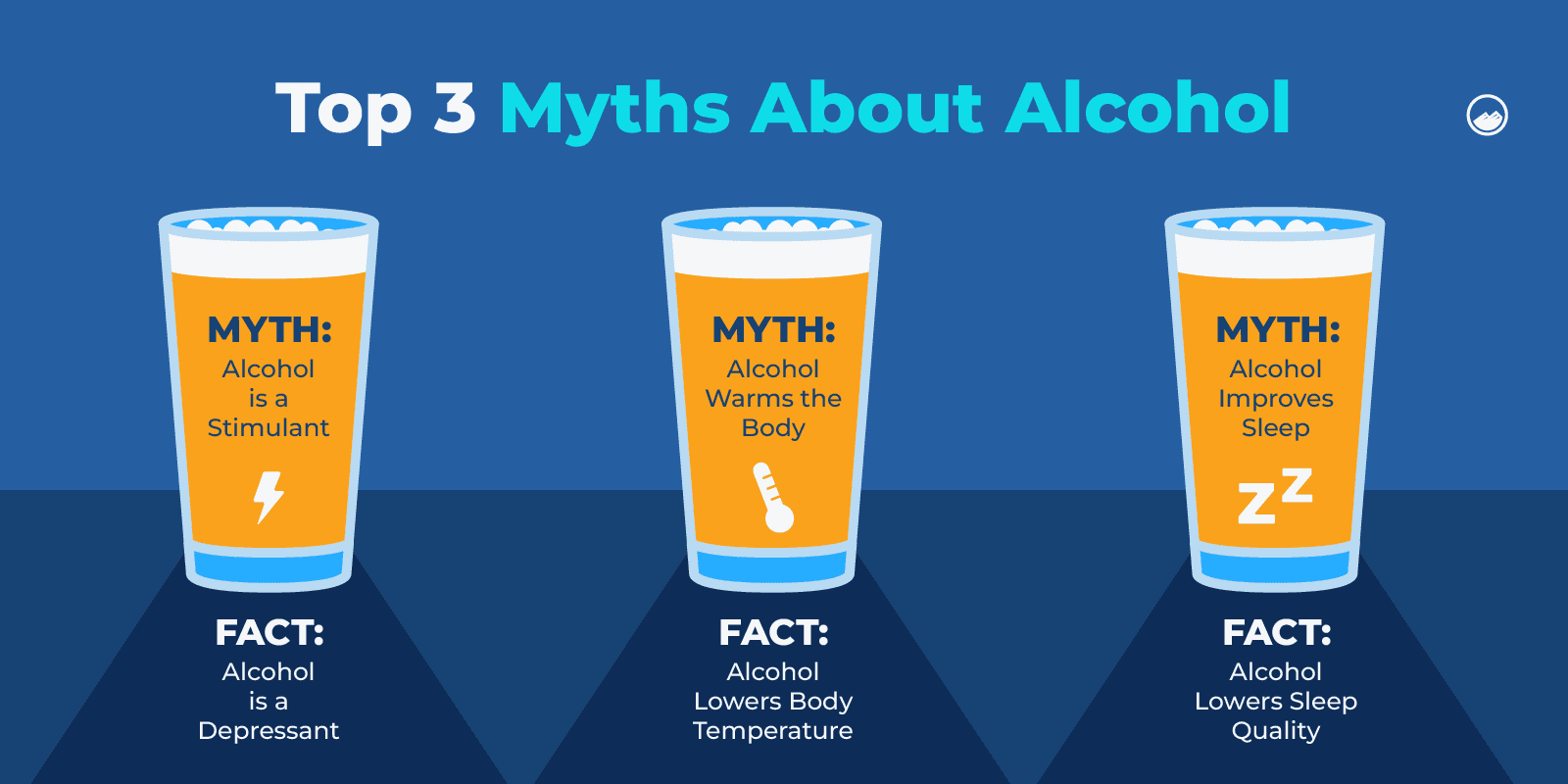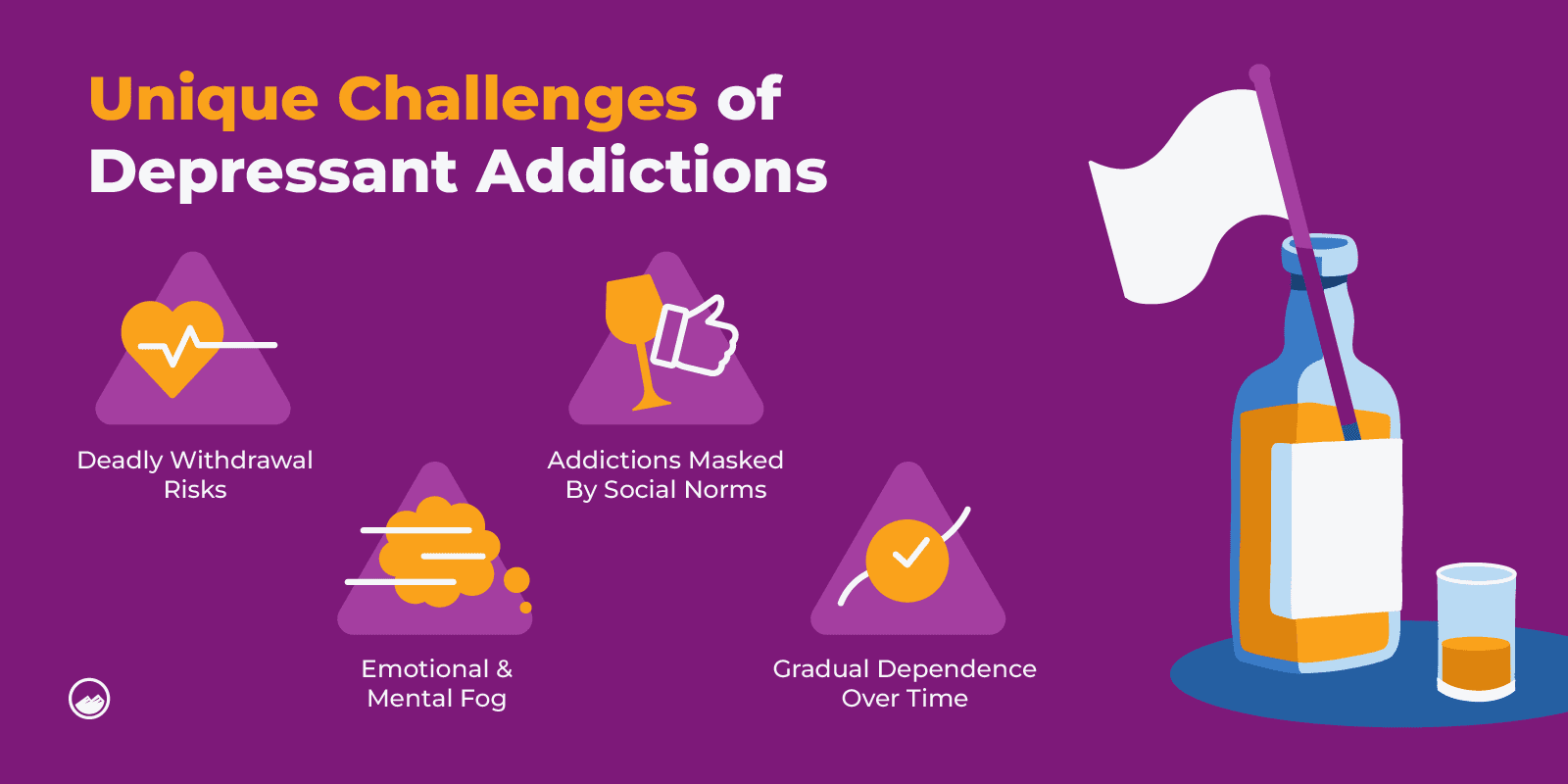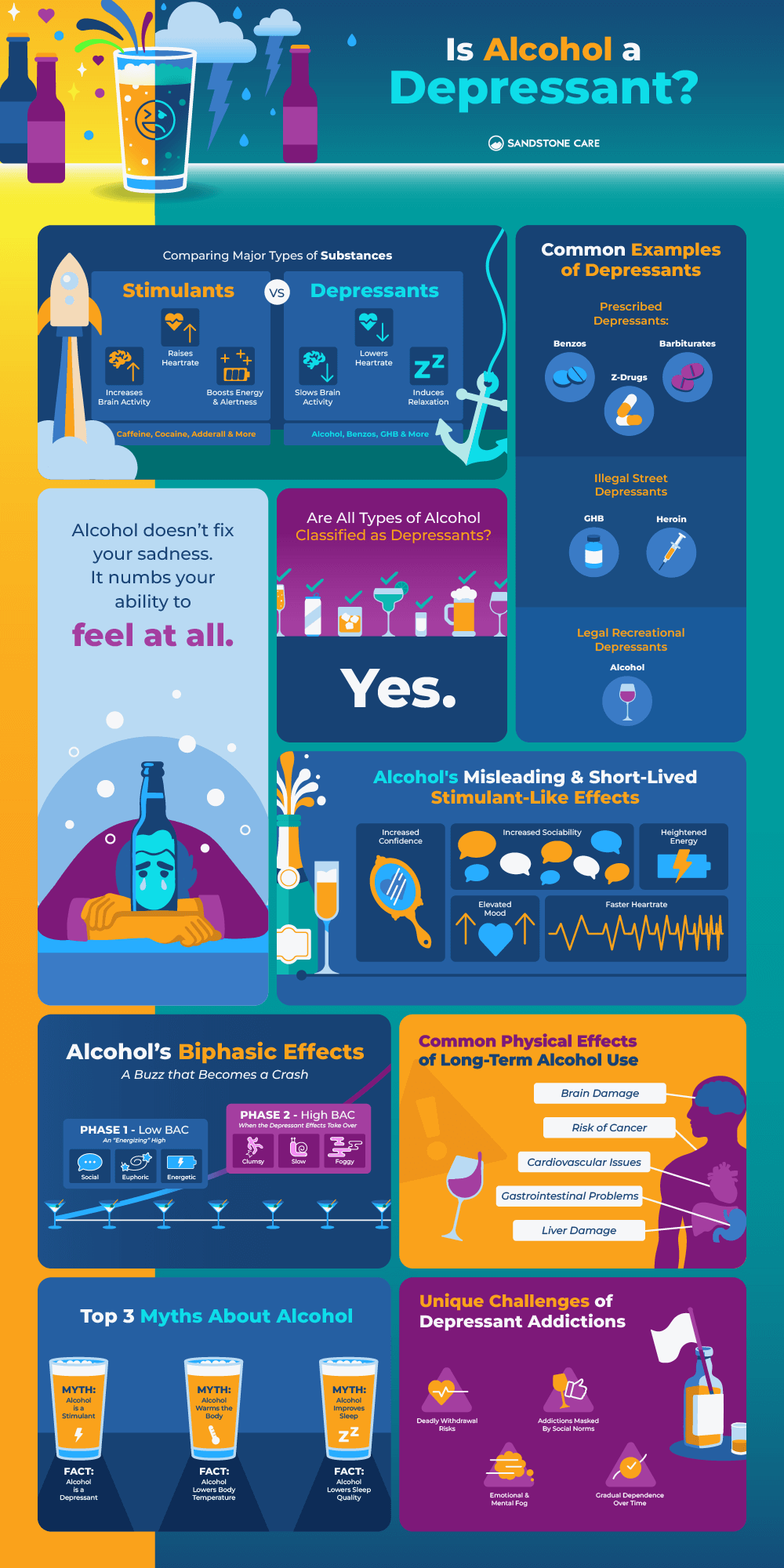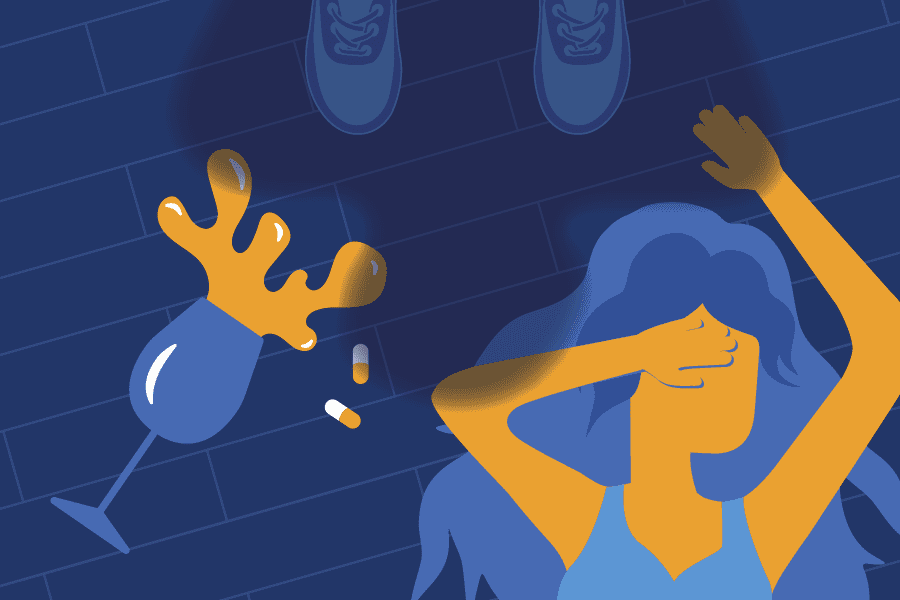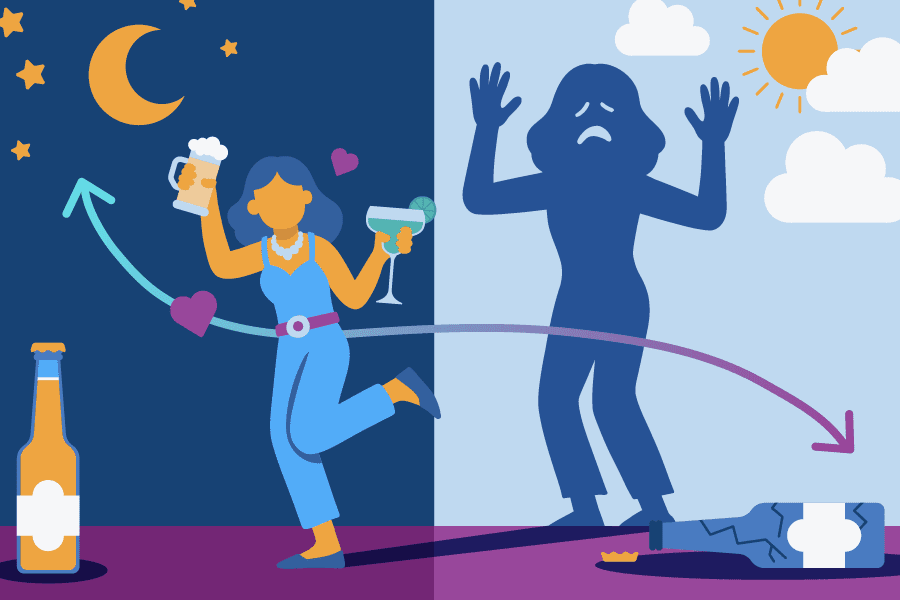Alcohol & Depressants
Is Alcohol a Depressant or a Stimulant?
Alcohol is considered a depressant because it slows down brain activity and basic functions.
Many people are under the misconception that alcohol, or certain types of alcohol, are stimulants because some short term effects can make them feel more energized, alert, and positive.
However, these effects occur because of the biphasic effect of alcohol and quickly wear off as a person continues to consume alcohol. All alcohol is considered a depressant.
What Is a Depressant?
A central nervous system depressant is a drug that slows brain activity and relaxes the muscles.
Depressants are used to treat health problems like anxiety, panic attacks, seizures, and insomnia.
However, they can be risky because they can impact a person’s coordination and ability to think clearly, react, and concentrate.
In large doses, they can cause serious drowsiness, vomiting, unconsciousness, and, in severe cases, lead to death.
When taken as prescribed, depressants can help a person manage symptoms of mental health disorders or physical conditions.
However, when abused, like they are in heavy drinking, they can be very dangerous and lead to substance use.
How Do Depressants Work?
Depressants work by increasing the neurotransmitter gamma-aminobutyric acid (GABA).
GABA impacts the nerve cell’s ability to send, receive, and create messages for the receptors in the brain.
It slows down brain activity by blocking certain signals in the brain and spinal cord.
In other words, depressants slow down the messages being sent between the brain and body, leading to slowed reaction times, coordination, speech, thought processes, and much more.
Depressants are often prescribed to induce sleep, help relieve anxiety, prevent seizures, and manage muscle spasms.
However, things like alcohol consumption can cause serious problems in brain function if they go unchecked.
What Are Examples of Depressants?
Common examples of depressants can include medications such as antidepressants, benzodiazepines, barbiturates, and some sleep medicines.
Some examples of benzodiazepines can include Valium, Xanax, Klonopin, and Restoril.
Why Do They Say Alcohol Is a Depressant?
Alcohol is a central nervous system depressant because it slows down brain activity and impacts a person’s mood, behavior, and self-control.
It can also lead to problems with memory, thinking clearly, coordination, and physical control.
Alcohol as a Depressant
How Is Alcohol a Depressant?
Alcohol is a depressant because it disrupts communication in the brain and slows down brain activity.
Alcohol depresses functions such as movement, reaction time, and speech, just like other depressant drugs.
It also impacts neural communication and activity, impacting a person’s ability to think clearly and creating altered or distorted perceptions and judgments.
What Alcohol Is Not a Depressant?
All alcohol is considered a depressant.
Some people might be under the impression that certain alcohols, such as tequila, are “uppers” or stimulants because they make them feel energized or more confident.
The reason they might experience these feelings is because of the biphasic effect of alcohol.
When a person first begins consuming alcohol, they might experience a rush of “feel-good” chemicals as a side effect, only for these effects to wear off quickly as they continue to drink.
This does not mean that tequila or any other type of alcohol is a stimulant; all types of alcohol are depressants.
Alcohol as a Stimulant
Is Alcohol Categorized as a Stimulant?
Alcohol may produce stimulant effects in the body, but it is officially categorized as a depressant.
What Are the Stimulant Effects of Alcohol?
When a person initially consumes alcohol, it can signal the brain to release dopamine, a “feel-good” hormone.
This can cause a person to feel energized.
Other stimulant effects that alcohol might produce are increased heart rate and increased aggression.
The stimulant effects begin to turn into depressant effects as a person’s blood alcohol concentration (BAC) rises.
However, just because alcohol can cause some stimulating effects does not mean that it is a stimulant.
Is Alcohol a Sedative-Hypnotic?
Alcohol can have sedative-hypnotic effects but is classified as a depressant.
Sedative-hypnotic drugs are drugs that are used to induce or help with sleep and are commonly used to help treat sleep disorders.
Alcohol is not an approved treatment option in the psychiatry field for helping with sleep issues.
Drinking in order to self-medicate for sleeping issues can lead to devastating long-term effects, including substance abuse.
Biphasic Response to Alcohol
What Does Biphasic Mean in Alcohol?
The biphasic effect of alcohol refers to the change in effects that alcohol has from the time of initial consumption to the rise in blood alcohol concentration level.
When a person has a BAC level of .055% or less, they tend to experience stimulant effects, but when the BAC rises about .055%, the depressant effects start to occur.
What Is the Biphasic Nature of Alcohol?
The biphasic nature of alcohol of alcohol refers to the stimulant effects shortly after the initial consumption, followed by depressant effects.
What Is an Example of a Biphasic Effect?
An example of the biphasic effect when drinking alcohol is when a person experiences a “buzz” shortly after they start drinking. At this stage, they might feel energetic,
As they continue to drink and their BAC level rises, they might begin to slur their words, become sick, impaired, or experience loss of memory.
What Is the Biphasic Alcohol Effects Scale?
The biphasic alcohol effects scale is a rating scale that measures the stimulant and sedative effects of alcohol.
This is a 14-item measurement of alcohol’s stimulant and sedative effects and is self-reported.
How Alcohol & Depressants Affect the Mind and Body
How Does Alcohol Affect the Brain and Central Nervous System (CNS)?
Studies show that alcohol can have an impact on brain tissue, damage brain cells, and depress the central nervous system.
Alcohol can also cause cognitive and memory problems in the brain.
It also interferes with communication between nerve cells. When a person drinks alcohol, they become intoxicated, which is believed to result from changes in neuronal communication.
Alcohol slows down the activity in the brain and central nervous system, causing a person to speak, think, and act slower.
How Do Depressants Take Effect on the Body?
Effects of depressants on the body can include:
- Relaxation
- Sedation
- Impaired coordination
- Decreased heart rate and breathing
- Slurred speech
- Weakness
- Headaches and lightheadedness
- Blurred vision
- Nausea and vomiting
- Lowered blood pressure
How Does Alcohol Affect the Body as a Depressant?
Because alcohol depresses the central nervous system, it can lead to physical effects, including slurred speech, lack of coordination, impaired perceptions, and slowed reaction time.
Excessive alcohol use over time can also:
- Take a toll on the liver
- Cause the pancreas to produce toxic substances, leading to pancreatitis
- Lead to various forms of cancer
- Mental health conditions such as depression
- Weaken the immune system
Alcohol poisoning can occur when a person drinks too much too quickly and is a result of drinking large amounts of alcohol in a short period of time.
Alcohol poisoning can lead to symptoms such as vomiting, seizures, slowed breathing, irregular breathing, confusion, pale skin, low body temperature, or difficulty staying conscious.
Does Alcohol Calm the Nervous System?
Since alcohol slows down brain activity, initially, a person might feel more calm or more at ease, especially in social situations.
However, these effects can wear off and worsen anxiety.
How Does Alcohol Affect the Brain and Behavior?
Alcohol use can affect a person’s mood and behavior, causing them to have difficulty controlling their balance, impulses, and judgment.
This effect on the brain and behavior can make a person more likely to hurt themselves or do something that will lead to a negative outcome.
The effects of alcohol can vary from person to person based on numerous factors, such as:
- How often a person drinks
- The amount of alcohol they drink
- Age
- Sex
- Genetics
- Family history of alcohol use, abuse, or addiction
- Overall health
How Does Alcohol Affect Your Mental Health?
Effects of alcohol on one’s mental health can include:
- Worsened mental health after the initial effects of alcohol fade
- Hangovers
- Anxiety or depression
Additionally, alcohol use disorder commonly co-occurs with other mental health disorders, including depressive disorders, anxiety disorders, trauma- and stress-related disorders, sleeping disorders, psychotic disorders, and other substance use disorders, according to the National Institute on Alcohol Abuse and Alcoholism.
Alcohol Addiction
Why Is Alcohol Addictive?
Alcohol has an impact on the brain, causing people to feel pleasure, and some people use it as a way to suppress negative feelings.
These feelings of pleasure can cause a person to drink over and over again in hopes of producing these “feel-good” feelings despite the negative effects alcohol has on their health and well-being.
What Is Binge Drinking?
Binge drinking is defined as a drinking pattern that brings blood alcohol concentration to 0.08% or more, according to the National Institute on Alcohol Abuse and Alcoholism (NIAAA).
This often happens when a woman has four or more alcoholic beverages within about two hours or a man has five or more drinks within two hours.
What Are Alcohol Addiction Symptoms?
Common symptoms of alcohol addiction can include:
- Attempting to stop drinking but being unable to
- Spending a significant amount of time, money, and energy getting alcohol, drinking, and recovering from alcohol use
- Cravings
- Facing challenges at work, school, or at home because of alcohol use
- Continuing to drink alcohol despite the negative consequences it has on one’s life
- Losing interest in things you used to once love
- Needing more and more alcohol to feel its effect is also known as developing a tolerance.
- Experiencing withdrawal symptoms when you don’t drink or try to stop drinking
How Do I Know if I Am Addicted to Alcohol?
Some signs of alcohol addiction can include:
- Drinking more and more to get the desired effects
- Alcohol use is affecting life at work, school, or in your personal life
- Secrecy or lying around alcohol use
- Losing control over the amount of alcohol consumed, frequently experiencing blackouts
- Getting in trouble with the law because of alcohol use
- Facing challenges in relationships
- Using alcohol as a way to cope and escape reality
- Changes in weight, eating habits, sleeping habits
When Should I Get Help for Alcohol Addiction?
If alcohol is starting to have a negative impact on your life, health, and relationships, it might be time to reach out for help for alcohol addiction.
Look out for the warning signs of alcohol addiction, and talk to a professional about any concerns you might have.
Alcohol Addiction Treatment
How Do You Treat Alcohol Addiction?
Alcohol addiction can be treated using a variety of different methods, including behavioral treatments, medications, and mutual support groups.
Common behavioral treatments used for alcohol addiction include cognitive behavioral therapy, motivational enhancement therapy, and family counseling.
Cognitive behavioral therapy is centered around a person’s thoughts, feelings, and behaviors. CBT can help a person facing challenges with alcohol to identify unhealthy thoughts and patterns and understand how they contribute to destructive thoughts.
Current medications that are approved by the U.S. Food and Drug Administration for treating alcohol dependence include naltrexone, acamprosate, and disulfiram.
Support groups like Alcoholics Anonymous and other 12-step programs can help people gain an extra sense of support and allow them to feel safe in sharing their experiences and learning from others.
Alcohol detox is also an important part of treating alcoholism. Quitting alcohol use can be difficult because of many reasons, including withdrawal symptoms.
Getting professional help and going through proper detox is important for a person’s healing and well-being.
Alcohol detox can be done safely in both inpatient and outpatient treatment settings.
Is Suboxone Used to Treat Alcohol Addiction?
Suboxone is a combination of buprenorphine and naloxone and is most commonly used to treat opioid addiction and is not prescribed to treat alcohol use disorder.
There are four medications approved by the Food and Drug Administration (FDA) for treating alcohol dependence, which include oral naltrexone, extended-release naltrexone, acamprosate, and disulfiram.
What Is the Best Treatment for Alcohol Addiction?
The best treatment for alcohol addiction depends on the individual and their needs.
Treatment for alcohol addiction is commonly a combination of psychotherapy and support groups.
If you or a loved one are facing challenges with alcohol use, it is best to reach out to your healthcare provider or a treatment program to learn more about the options that are available and what types of treatment might be the best fit for you or a loved one.

